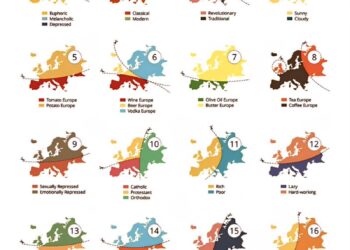Select Language:
As ChatGPT approaches its third anniversary, approximately 10% of retail investors are utilizing chatbots to select stocks, fueling a significant increase in the robo-advisory sector. While enthusiasts acknowledge the potential, they also emphasize that it remains a high-risk approach that isn’t ready to replace traditional financial advisors.
Artificial intelligence has democratized access to investment tools, enabling individuals to pick stocks, track their performance, and analyze investments—capabilities once exclusive to major banks or institutional investors.
Forecasts from Research and Markets indicate that the robo-advisory industry—comprising fintech companies, banks, and wealth management firms offering automated, algorithm-driven financial advice—could reach nearly $471 billion in revenue by 2029, up from $62 billion last year, representing about a sixfold growth.
Jeremy Leung, who spent nearly 20 years analyzing companies at UBS, has shifted to using ChatGPT for stock research within his multi-asset portfolio since leaving the Swiss bank late last year.
“With the high costs of market data services like Bloomberg, I’ve turned to AI tools,” Leung explained. “Even a simple tool like ChatGPT can perform many of the workflows I relied on before,” though he warns it might miss crucial insights due to limited access behind paywalls.
Leung is part of a rapidly expanding industry. A survey by broker eToro, which polled 11,000 retail investors worldwide, found that about half are open to using AI tools like ChatGPT or Google’s Gemini for investment decisions, with 13% already actively using them.
In the UK, 40% of respondents in a survey by Finder reported using chatbots or AI for personal finance advice.
ChatGPT itself advises users that it should not be relied upon for professional financial guidance—a reminder that OpenAI has not disclosed how many people use its chatbot for investment purposes.
“AI models can be impressive,” noted Dan Moczulski, UK managing director at eToro, a platform with 30 million users globally. “The danger comes when people treat models like ChatGPT or Gemini as infallible predictors of the market.”
He recommends using AI platforms specifically designed for market analysis, cautioning that “general AI models can misreport data, rely too heavily on historical price movements, or create narratives based on incomplete information.”
In March 2023, when asked to select stocks based on quality criteria—such as manageable debt levels, consistent growth, and competitive assets—Finder’s version of ChatGPT picked a portfolio featuring Nvidia, Amazon, Procter & Gamble, and Walmart. This selection has already appreciated by nearly 55%, outperforming most of the UK’s top funds by about 19 percentage points.
While U.S. stocks remain near all-time highs, making them seemingly resilient despite unpredictable policies and mixed economic signals, stock picking through ChatGPT demands financial knowledge. Its users warn of the high likelihood of errors before achieving success.
Leung suggests crafting detailed prompts, like “Assume you’re a short analyst; what is the short thesis for this stock?” or “Use only credible sources, such as SEC filings,” to improve accuracy.
However, risk is significant. The popularity of AI-driven investment tools raises concerns about whether retail investors employ adequate risk management strategies to safeguard against market downturns.
Year-to-date, the European STOXX 600 index has gained nearly 10%, and the S&P 500 has increased by 13% after a 23% rise last year.
Leung cautions, “If people grow comfortable investing with AI and start making money, they might not know how to handle a market crisis or downturn.”






